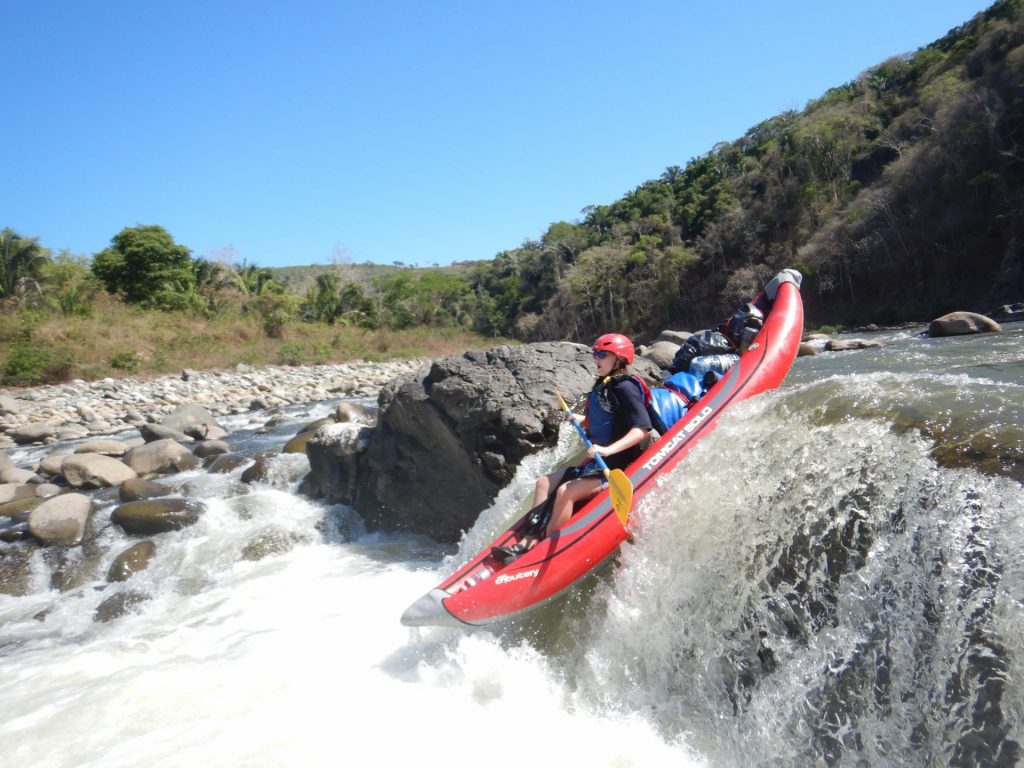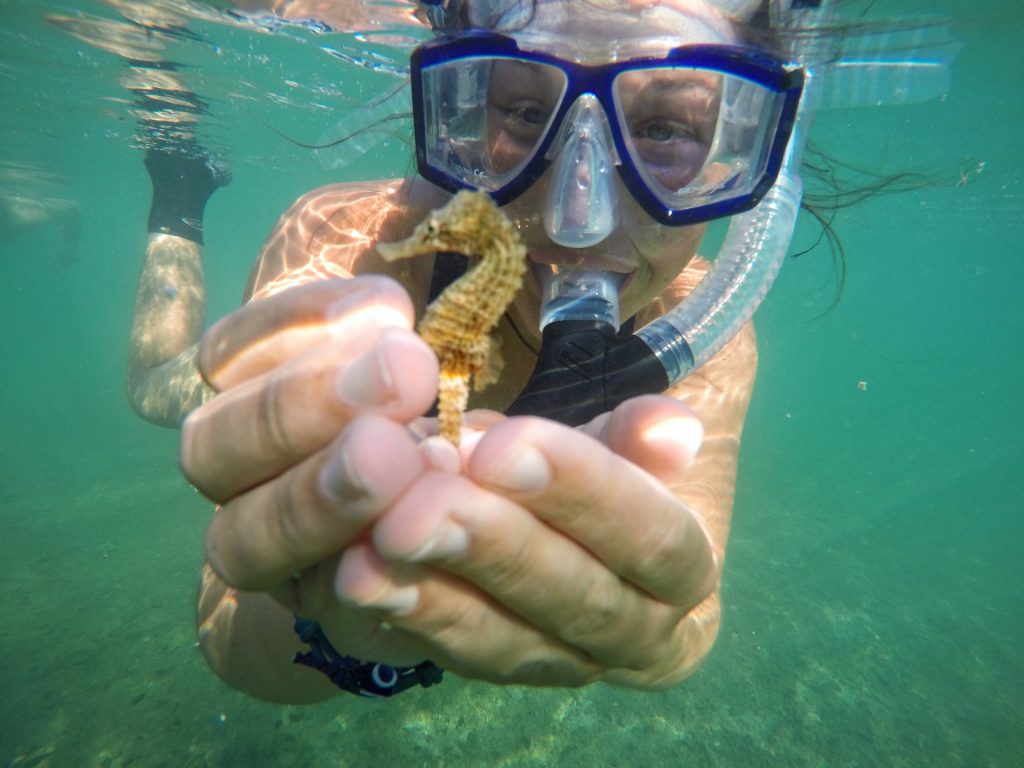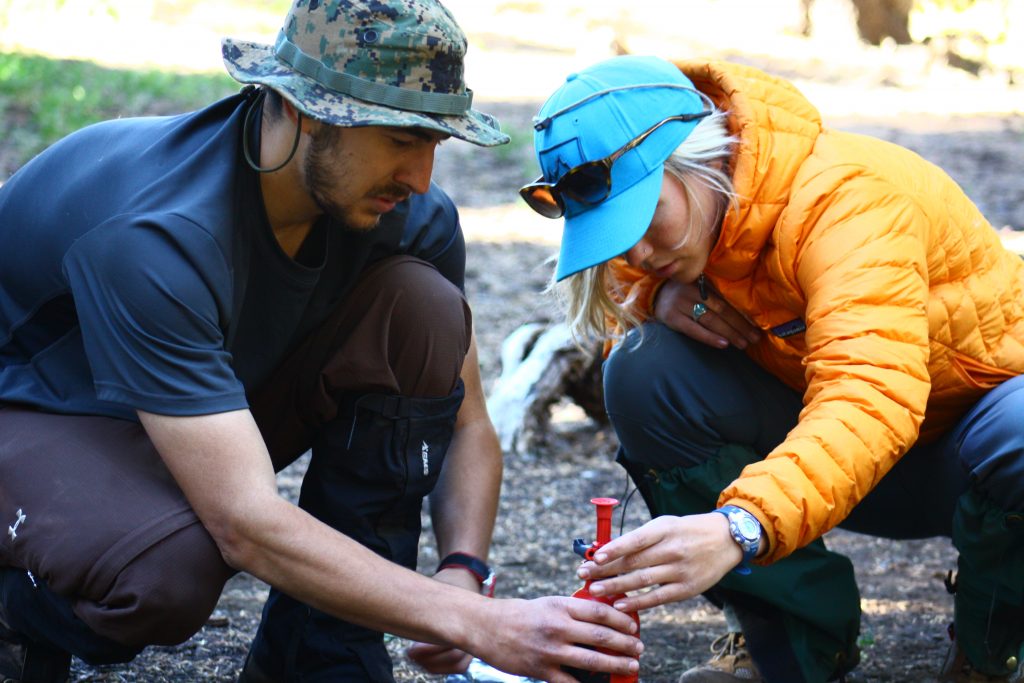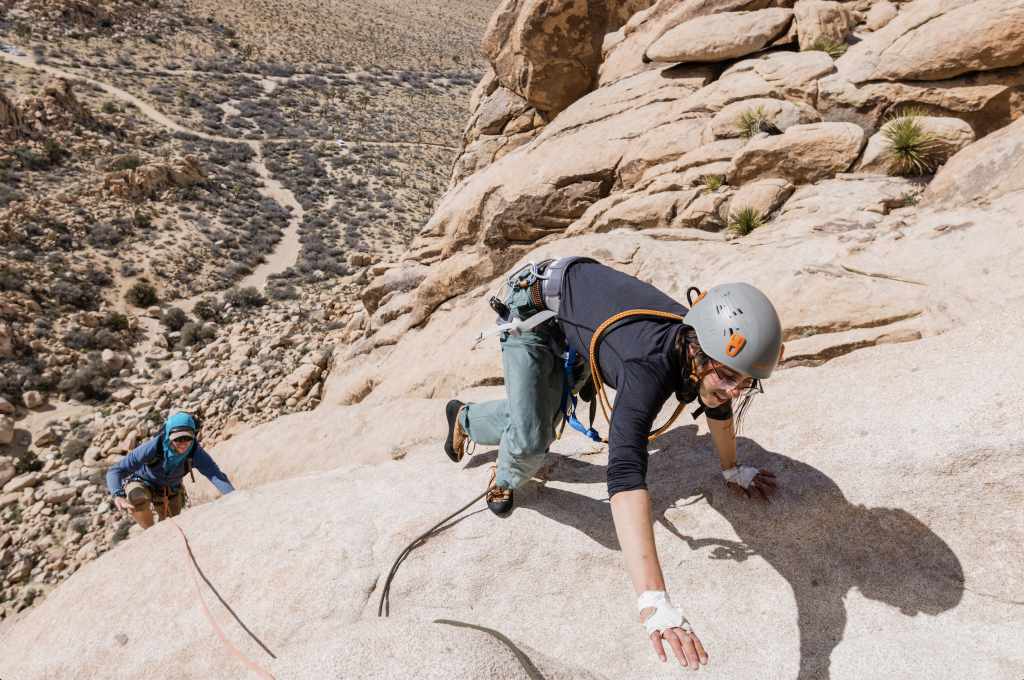I remember when I found out my freshman roommate had taken a gap year. I was struck with curiosity and wonder. One semester she sailed the Atlantic Ocean and another she backpacked in New Zealand. Most college freshmen are timid and anxious at the beginning of their first semester, but she walked lightly—with confidence, humbleness and determination. Although she didn’t know exactly what she wanted to study at the time, she felt at peace with it. She already had the experience that I felt so uncomfortable with; she met strangers, lived with them in close quarters and dipped her toes in a variety of different things, all while traveling the world. She faced challenges and learned from them, put herself out there, and by doing so, felt comfortable being in uncomfortable situations. Her ease with the unknown is a trait I still value in her—one she learned on her gap year—and that I’ve tried to embody myself. This is why I chose to work for Outward Bound and what I want my students to experience.

Photo captures a student conquering the river on an Outward Bound Semester expedition.
Not sure what you want? Embrace it.
What college do I want to go to? What do I want to study? What career do I want to pursue? If these questions sound familiar and you’re struggling to answer them, consider keeping the answer undecided and take a break from it. Sometimes we focus on the things that are influencing us with or without our consent—social media, peers and advertisements—when we should be focusing our energy elsewhere, on ourselves.
In my experience instructing students that are at the end of their high school career, self-worth is deeply misconstrued. It’s defined as being better than others—academically, athletically and/or socially. Instead of looking at self-worth in comparison to others, we should be looking at it in comparison to ourselves. Because improving upon ourselves is the only thing we truly have control over. There’s a huge amount of pressure to succeed. But what does success mean? Taking time to think about it, away from the distractions and influence of others, can provide us with clarity and our own individual definition of success that will empower and pave a path that is full of heart and unique to every single one of us.
If you don’t know the answers yet, embrace that. Instead, consider a gap year. It’s a way to explore those questions productively, adventurously and independently. It can help bring light to who you are, what you want to do, and turn the “I don’t knows” into “because it feels right.”

Students ponder the day’s route on a Northwest Outdoor Educator expedition. Courtesy of Charis Nichols.
Why is a Gap Year important?
To feel purposeful is to feel connected to ourselves and others, and to do that we must experience the world differently than we have before. Taking a gap year before or after college, or before starting a career, can teach you more about yourself and strengthen your interpersonal skills. You’ll be more intentional and confident with your decisions. And that’s what a gap year fosters—taking us off the path that we’ve been following, facing ourselves against ourselves, and opening our minds to more than what we thought we knew.
Investing time into an experience like this allows for us to slow down, reflect, meet and strengthen our weaknesses, learn and work with people in new and unique environments and help us pave our path to self-discovery. It helps us bring our learnings to the life and community we choose to be a part of, and choose on our own and confident accord.

What are the benefits of a Gap Year?
By taking the time to explore and experience different things, we’re able to tap into our creative, ambitious leadership skills more often. Especially if you take a gap year with a group process component, like Outward Bound Gap Year & Semester programs, you’ll experience enlightenment and failure with the support of others in a wilderness environment—a teacher in its own right.
Embarking on a gap year can also provide cross-cultural, volunteer and working opportunities. It’s an integrative experience that makes us better community members, more driven to help others through our work and gain a better understanding of what we enjoy (or don’t) by directly experiencing it.

A student explores the sea on a Maine to Bahamas Semester expedition.
And that’s really what it boils down to, how we choose to spend our time. It could be chasing a career that we never dreamt ourselves, walking the path already paved, or it could be exploring the unknown, taking time to greet ourselves in new places with new people. The things you learn on a gap year continue to foster as you move through the world, and to get that experience at a young age is empowering and sets the bar high for future endeavors, in school, careers and relationships—however it is that you define success. However, we first have to discover what we love before feeling successful. It can’t be told to us or passed along—we need to experience it ourselves. We surely don’t do what we love for a resume, but when what we love fills the page up, it makes finding a school or career an exciting task rather than a daunting one. Walking into an interview or conversing with peers, the “I don’t knows” will fizzle away. Coming back from a gap year, you’ll discover something that no one can ever take away. You’ll know what is right for you, even if the future is unknown—feeling comfortable being uncomfortable.
What can a Gap Year do for your resume?
A gap year has a variety of benefits that have shown to significantly improve the overall academic performance of students attending a university. In fact, this article states that “students who took a Gap Year almost always over performed academically in college, usually to a statistically significant degree.” It also goes on to say that “Sydney’s Daily Telegraph recently reported on a new study of more than 900 first-year university students that revealed not only did taking a year off have a positive effect on students’ motivation, it also translated to a real boost in performance in the first semesters at university.”
It also increases the chances of being hired in a working environment. According to the Gap Year Association, a gap year improves emotional intelligence, and that’s transferable to any workplace. Being able to work well with diverse groups of people, communicate clearly, take ownership for mistakes made and collaborate creatively are desirable qualities in employees. It also shows employers that exploration is important to you, you take initiative and try new things. It’ll be a highlight topic for most employers and universities, because it is unique, and you can speak to the challenges and clarity it brought you. Not many people get to experience something like that and even if they can, might not be courageous enough to try.
By placing your gap year on your resume, you invite curiosity. People are intrigued by experiences that are far from their own. It’s refreshing and respectable to see someone choose a new path for themselves. It may be the first time in our lives that we choose something different, something for us. And that decision makes us feel stronger, more connected to our surroundings.
A big learning is the ability to be vulnerable and honest, and more so, comfortable doing it. A gap year provides endless opportunities to practice being honest with yourself, your peers that may be a part of your experience, and the people you meet along the way. This is highly admirable, but one that doesn’t come naturally to most people. Being able to sit through an interview or answer questions on an application honestly and expressing vulnerability is a step ahead of most. A lot of people often say what they think people want to hear. Taking a gap year can foster honesty within us, and we can start to say what we want and need people to hear.
To recap, your Gap Year has many benefits:
- You’ll be more honest, humble and compassionate with yourself and others.
- It fosters self-reliance, independence and creativity.
- It’ll strengthen your leadership skills.
- You’ll have the ability to successfully work alongside and exist with others—a huge asset to any team.
- It improves emotional intelligence, helping you communicate clearly and ask for what you need.
- You’ll have many new experiences to draw from that help give you perspective different from most people.

On an Outward Bound Semester, students learn many technical and interpersonal skills.
To Parents Reading This
As an Instructor working with young adults who are on the brink of this big decision, it’s not my job to tell them what to do, as I recognize they’re probably feeling many pressures. But I can ask them about their intention behind their choices. I think about my decision to go to a university right after I graduated high school and how the decision didn’t truly seem like mine; I was riding the wave of normalcy. I was doing what all my peers were doing and what I thought my parents wanted me to do. By no means do I look back in regret, but I do think about the options I had but didn’t discover for myself. As an Instructor now, I want to help my students recognize that they have options. And that the “I don’t knows” that play a lead role in most conversations regarding what’s next in their lives can move out of the spotlight and take a back seat with a little time, courage, curiosity and honesty.

On a Outward Bound Gap Year & Semester course, a young person is given the opportunity to escape from the familiar, traditional, intense academic or working world and immerse themselves in the real-life classroom of the outdoors. Students find themselves in unfamiliar, often spectacular environments, traveling and problem solving with a group of peers. At the end of it all, they’ve learned they can do more than they ever thought possible, with a strong sense of who they are and how they want to contribute to their communities when they return home.
We offer courses tailored to a variety of seasons of life, in a variety of seasons of the year, all around the world. Take a chance—you won’t regret it.
About the Author
Blaine Weiss is an outdoor Instructor who works primarily with the FINS and Intercept programs of the North Carolina Outward Bound School. With a background in film and writing, she seizes the opportunity to fuse her interests in the creative arts with her love of the outdoors.
OTHER POSTS YOU MAY LIKE
Read More
Read More
Read More




